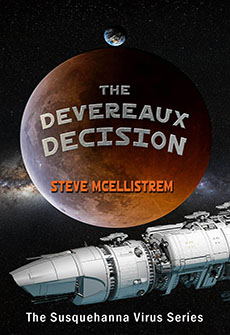I realize it’s ironic to write an article about why no one reads anymore, but I’m doing it anyway. And I’m not saying no one reads anymore. Obviously, people do. In fact, some people read as much as they ever have, consuming multiple books per week, gorging themselves on the tasty offerings of Shakespeare, Jane Austen, JK Rowling and more.
But readers are slowly dying off, easing into extinction as newer and flashier means of grabbing our attention evolve. Why? Because reading is hard, or at least harder than watching TV or movies or playing video games.
Reading – what I call deep reading – stimulates the brain, forcing us to focus, to remember and to perform various mental gymnastics. It provides enormous benefits, but it ain’t easy, and that’s predominantly why reading is dying out. How do we get more people to read? Hopefully, by explaining the benefits in a quick and easy format they’re willing to peruse.
First, reading reduces stress. In one study, it took readers only about six minutes to achieve a decrease in heart rate and muscle tension.
Second, it keeps your brain sharp precisely because it’s so much harder than watching TV or playing games. It may even help stave off Alzheimer’s disease, although that hasn’t yet been proven.
Third, it helps you sleep better (unless you’re reading in bed from a Kindle or Nook or iPad or some other kind of tablet or smartphone). The light emitted by those machines tells your brain to wake up.
Fourth, when you let a book carry you away emotionally, it helps you better empathize with others.
Fifth, it increases your vocabulary and your writing skills, and if you read about topics related to your job, it will help you get ahead at work. Even if what you read isn’t work related, it may help your career.
Sixth, it improves your imagination because when an author, for example, introduces a character or setting, you have to create it in your mind instead of relying on a camera image.
There are many other advantages to reading as well, including developing greater discipline, helping you better understand other cultures, building self-esteem and making you more interesting.
All these benefits are known, at least by those who study the subject. But a great many people still believe they don’t have time to read. Society floods us with sensory input. Our phones, our tablets, our laptops: all offer connectivity to the wider world. So we think that because we’re connected to it electronically, we needn’t pursue such an old-fashioned activity as reading.
And we claim we do read, because we saw that post on Facebook or Instagram or Twitter, or we read most of that article posted by TMZ or some similar site.
Unfortunately, however, that isn’t reading – not deep reading, at any rate. Scanning an article or reading a post by a friend does not qualify as deep reading because it doesn’t take long enough to allow your brain to immerse itself in the experience.
Even reading this article doesn’t really count. You need to read for at least 10 or 15 minutes to realize the benefits of deep reading. So get out there and give it a try. Pick up a good book (or even one of mine) and start reading again. It’ll make you feel young.
